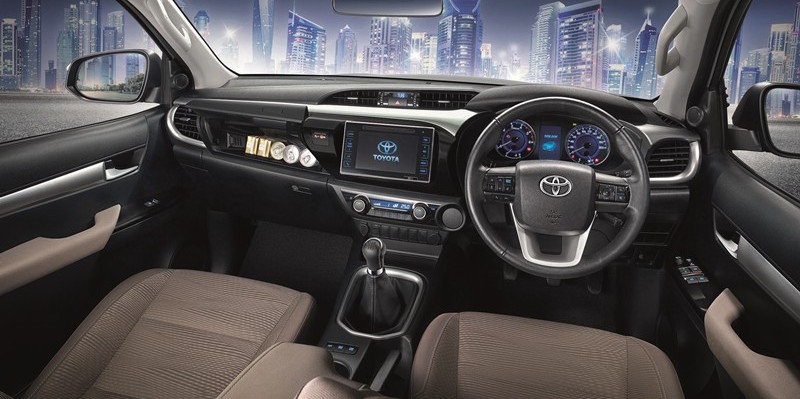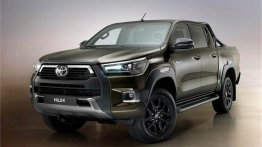Chief export markets are Australia, New Zealand, the Middle East, South America, and UK.
With one of the largest markets for pickup trucks shrinking by 20 percent in this fiscal year, Toyota began exporting the 8th generation Toyota Hilux pickup truck from Thailand this month. The trucks will be manufactured at two of Toyota's plants in the country and exported to over 130 countries.

The Japanese car manufacturer has increased the ratio of exports for pickup trucks, from the previous 50 percent to 60 percent now to offset the slump in local demand, making Thailand its global base for the production of 1-ton pickup.
The total production capacity of the company in Thailand stands at 450,000 units a year. Initial plans are to export 186,000 units with a focus on major markets like Australia, New Zealand, the Middle East, South America, and UK.

Based on a new platform, the Hilux Revo is modernized offering car-like features. The new pickup comes with 7-airbags, ABS, EBD, BA, Trailer Sway Control, VSC, Downhill assist control and Hill Assist control. Comfort and convenience features are keyless entry with push button start, auto climate control, rear AC vents, infotainment system with 7-inch touchscreen, LED headlights and LED daytime running lamps.
Toyota, in Thailand, offers the Hilux pickup truck, as the Toyota Hilux Revo, with 3 engine options. A 2.4-liter 4-cylinder DOHC engine with a turbo intercooler makes 150 PS at 3,400 rpm and produces peak torque of either 343 Nm between 1,400-2,800 rpm or 400 Nm between 1,600-2,000 rpm depending on the variant. A 2.7-liter 4-cylinder DOHC Dual VVT-i (petrol) engine that makes 166 PS at 5,200 rpm, producing peak torque of 245 Nm at 4,000 rpm for all variants.

Finally, a 2.8-liter 4-cylinder DOHC engine with a turbo intercooler, making 170 PS at 3,600 rpm and peak torque of 343 Nm between 1,200-3,400 rpm, is also offered in one variant. Engines are paired either to a 6-speed manual or automatic gearbox.

























